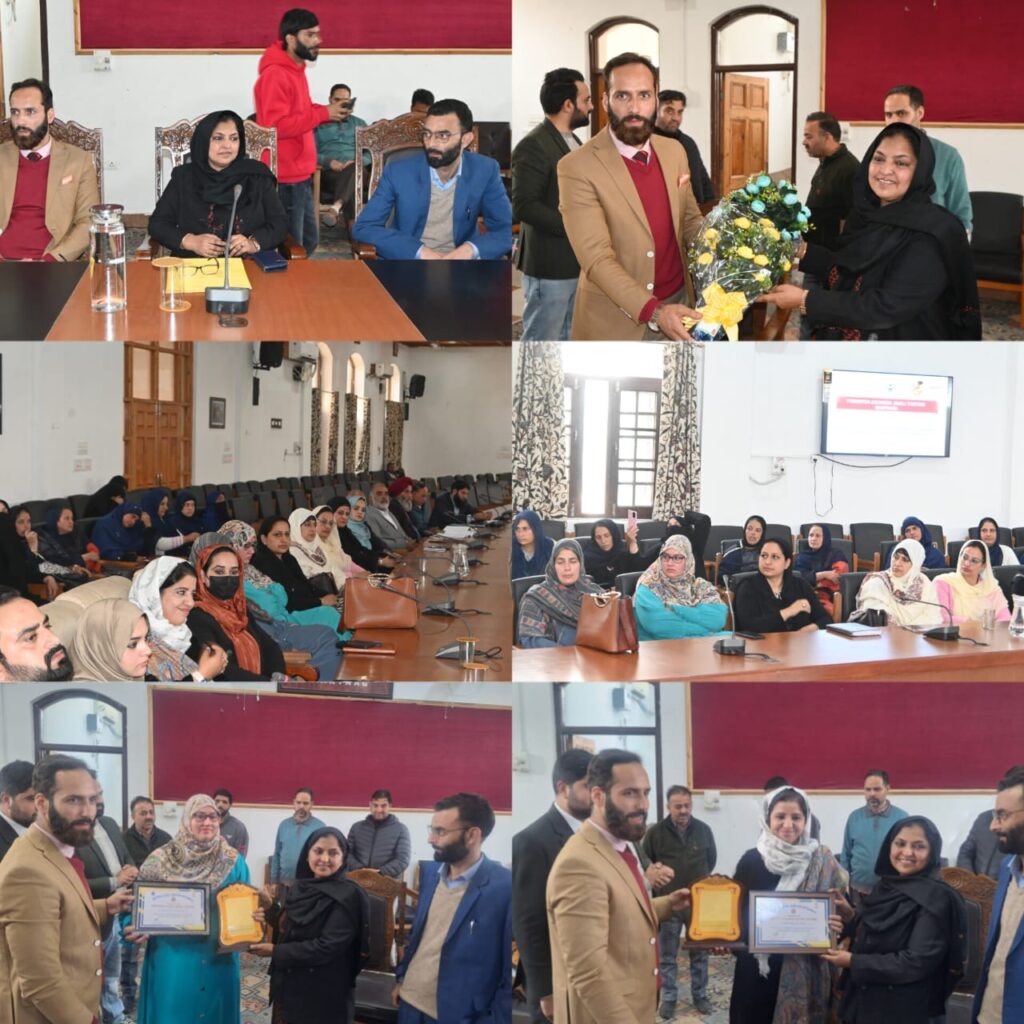DLSA Anantnag organizes Awareness program on Sexual Harassment of Women at Workplaces
ANANTNAG, OCTOBER 28: To foster safer workplaces and promote awareness on preventing sexual harassment, the District Legal Services Authority (DLSA) Anantnag organized a programme on Sexual Harassment of Women at Work Place (Prevention, Prohibition and Redressal Act, 2013 (POSH) Act at Dak Bungalow, Anantnag.

This event brought together members from various sectors viz., legal, educational, medical, and social welfare sectors to discuss the POSH Act’s significance and implementation.
Masarat Roohi, Additional District & Sessions Judge Anantnag, who was the chief guest at the event emphasized the judiciary’s role in reinforcing the POSH Act’s framework and urged organizations to adopt policies that reflect zero tolerance for harassment.
She highlighted the judiciary’s commitment to supporting victims and encouraged all departments to uphold the law with transparency and accountability, ensuring that the POSH Act’s principles are upheld in every workplace.
Earlier, the event began with a welcome address by the Chief Legal Aid Defense Counsel (LADC) Zakir Hussain Lone, who emphasized the importance of POSH Act awareness. He underscored the need for collective action in workplaces to ensure that dignity and respect are upheld, stressing that both employers and employees must work collaboratively to foster harassment-free environments.
The event was also addressed by Sana Majeed, Legal Cum Probation Officer, District Child Protection Unit; Chief Education Officer, Secretary DLSA Anantnag and District Social Welfare Officer.
The speakers delivered speeches at length on the subject highlighting various aspects vis a vis raising awareness on the POSH Act, its enforcement besides measures to prevent such incidents and proper handling of such cases. They also deliberated on the free legal aid for such victims, creating an empowered and safe working atmosphere.
In order to boost the morale of the participants, felicitation awards and appreciation certificates were distributed among the guest and participants.
The event included an interactive Q&A session, allowing participants comprising educators, healthcare professionals, social workers, and other community leaders to discuss practical approaches to implementing the POSH Act.
This collaborative dialogue offered insights into establishing strong internal complaint mechanisms and reinforcing anti-harassment training programs within various institutions.






